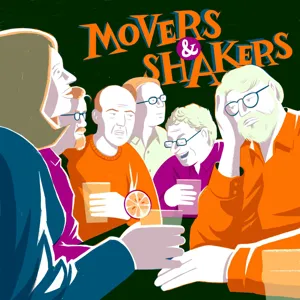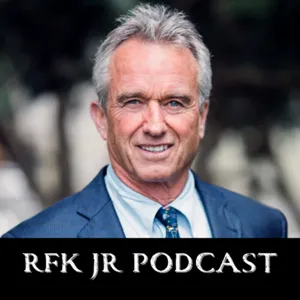The Cure

The Movers and Shakers are back in the Notting Hill pub, and this week we're talking about quite possibly the biggest question in the world of Parkinson's: will we get a cure? To assist with answering this ultimate enquiry, the gang are joined by Prof Tom Foltynie, a neurologist at the bleeding edge of PD research, and Will Cook, CEO of the aptly named charity Cure Parkinson's. Is there hope for a cure? What form could it take? And what timeframe might we see it in?
Presented by Rory Cellan-Jones, Gillian Lacey-Solymar, Mark Mardell, Paul Mayhew-Archer, Sir Nicholas Mostyn, and Jeremy Paxman.
Produced and edited by Nick Hilton for Podot.
Additional editing by Ewan Cameron.
Music by Alex Stobbs.
Artwork by Till Lukat.
PR by Sally Jones.
Movers and Shakers is generously sponsored by Boardwave, high powered Executive networking programme for European Software CEO, Non-Exec Directors, Chairs and their Investors. They are keen supporters of Cure Parkinson's. To find out more, visit https://cureparkinsons.org.uk/
Hosted on Acast. See acast.com/privacy for more information.








